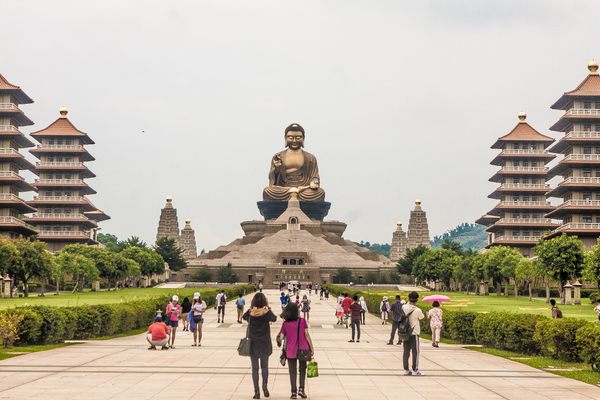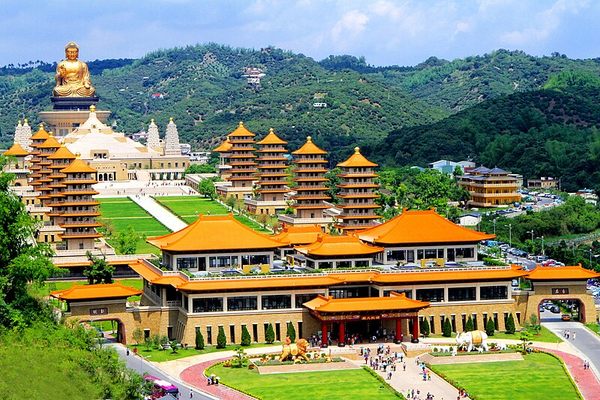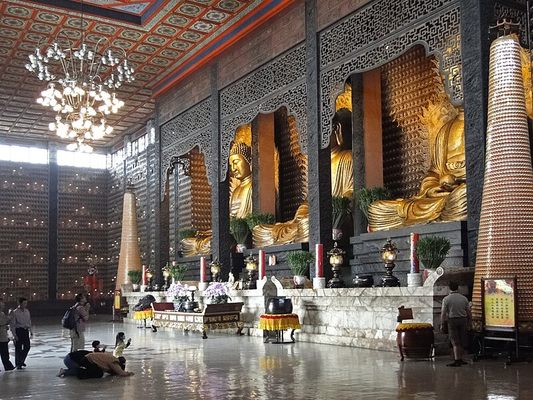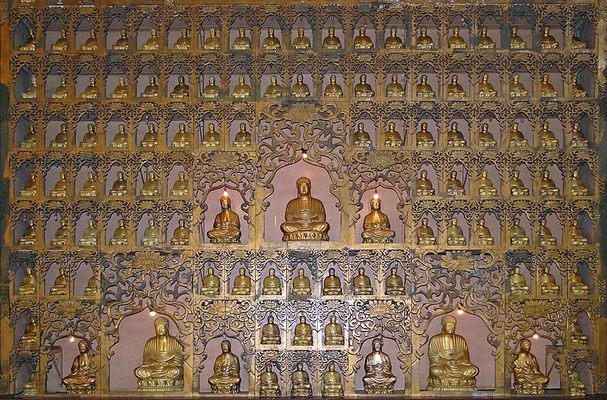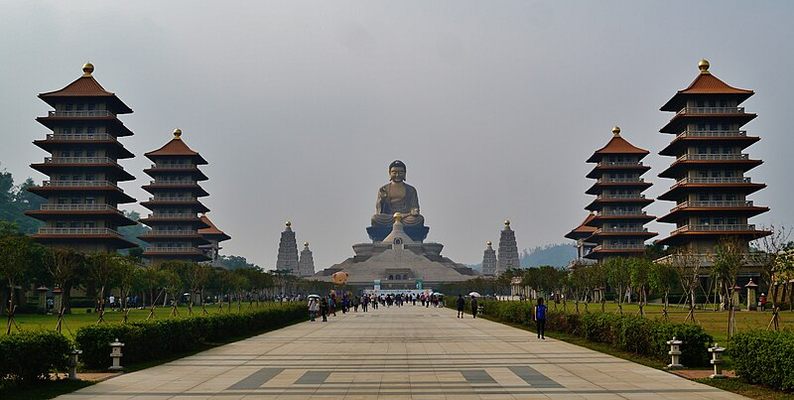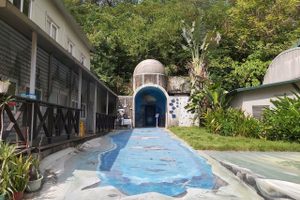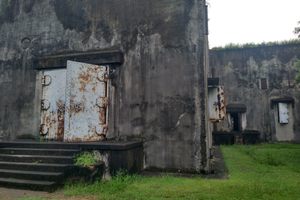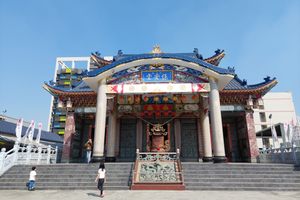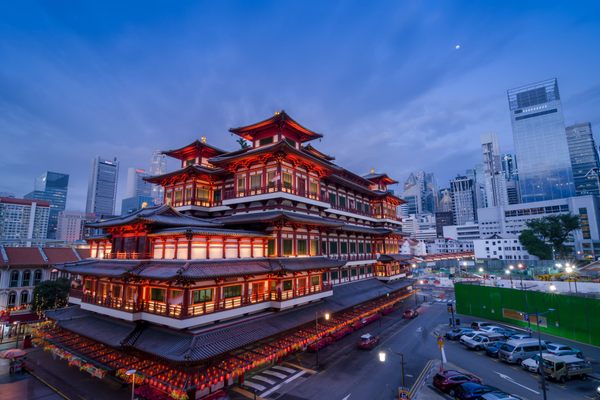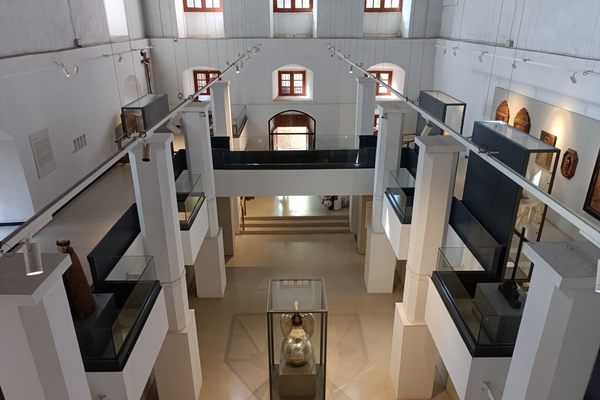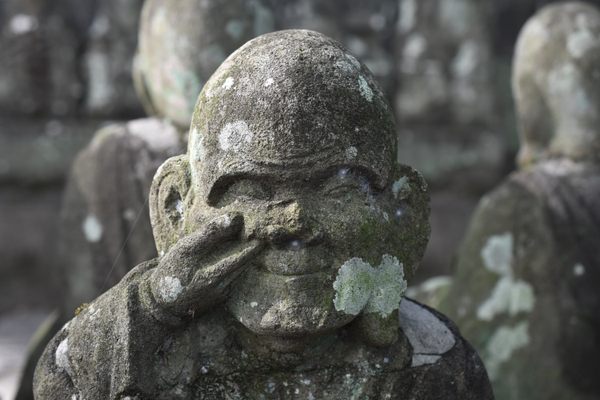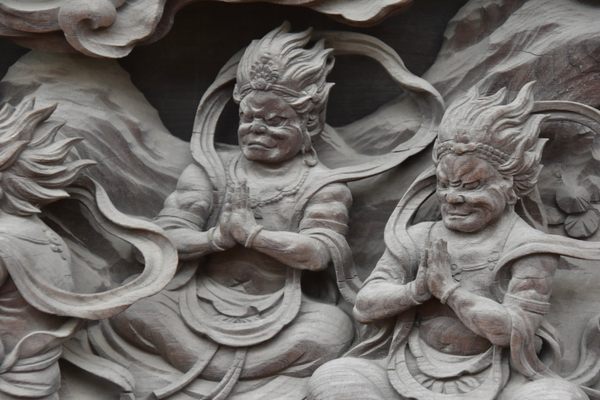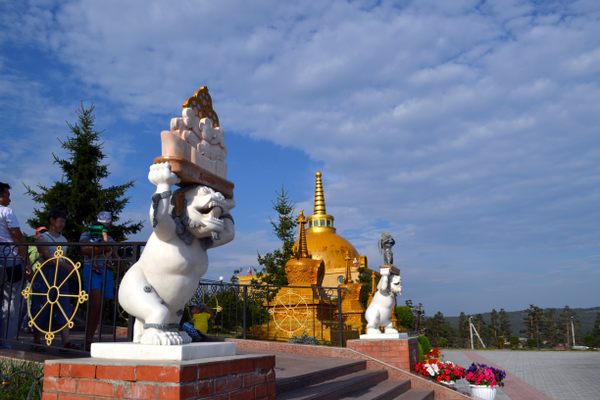About
The Fo Guang Shan Buddha Museum is one of the central tourist attractions in southern Taiwan. The museum's iconic image is the massive seated Buddha statue which gazes down from the highest point of the museum's exterior. But few who pass through to admire the magisterial architecture or exhibits on Buddhist history and art realize the site contains an actual piece of the Buddha.
When the Buddha reached parinirvana and died in the fifth century B.C., his body was cremated. The remains were then kept as relics and were distributed throughout the world. Reportedly, three of the Buddha's teeth remain, and one of them has been held at Fo Guang Shan since 1998. Originally held in the adjacent monastery, the museum was built in 2011 with the express purpose of containing the tooth.
Before ever making it to Taiwan, the tooth relic was for a thousand years held in a monastery in India, before being transported to Tibet after the Muslim invasion of the subcontinent. It would remain there until the Cultural Revolution, when the monastery holding it was burned to the ground. However, the lama Kunga Dorje Rinpoche saved the relic and carried it into India, where he held it in a reliquary around his neck for the next 30 years. In 1998, when Fo Guang Shan founder Venerable Master Hsing Yun traveled to India, the aging Tibetan lama gave him the priceless artifact.
The tooth is held in a reliquary, with a spherical body made of transparent crystal resting on a base inlaid with obsidian, pearls, and precious jewels; rising from the sphere is a spire made of 33 stacked rings, topped with a mother-of-pearl lotus and a crystal jewel. Inside is a smaller reliquary, which houses the tooth relic.
The tooth is typically held in a shrine at the back of the museum, above a statue of the reclining Buddha made of precious white jade. To either side are massive jade reliefs depicting the Western and Eastern Pure Lands. The adjacent walls are covered with sandalwood reliefs depicting Buddhist holy sites. Worshippers and pilgrims come daily to pray to the Buddha in the presence of his holy relic and bathe in its sacred aura.
Other sites built to house reputed tooth relics of the Buddha include the Buddha Tooth Relic Temple and Museum in Singapore and the Temple of the Sacred Tooth Relic in Kandy, Sri Lanka.
Related Tags
Know Before You Go
The museum's hours are 9 a.m. to 7 p.m. over the weekend and 9 a.m. to 6 p.m. during the week, except Tuesday, when it is closed. Entry to is free, but it is quite a trek from the Kaohsiung city center. Buses leave Zuoying Station hourly and take about 45 minutes to reach the museum.
The shrine at the back of the museum is free to enter, but no photography is allowed and those who enter must take off their shoes first. Remember to be respectful, as it is a place of worship.
Community Contributors
Added By
Published
June 4, 2024
